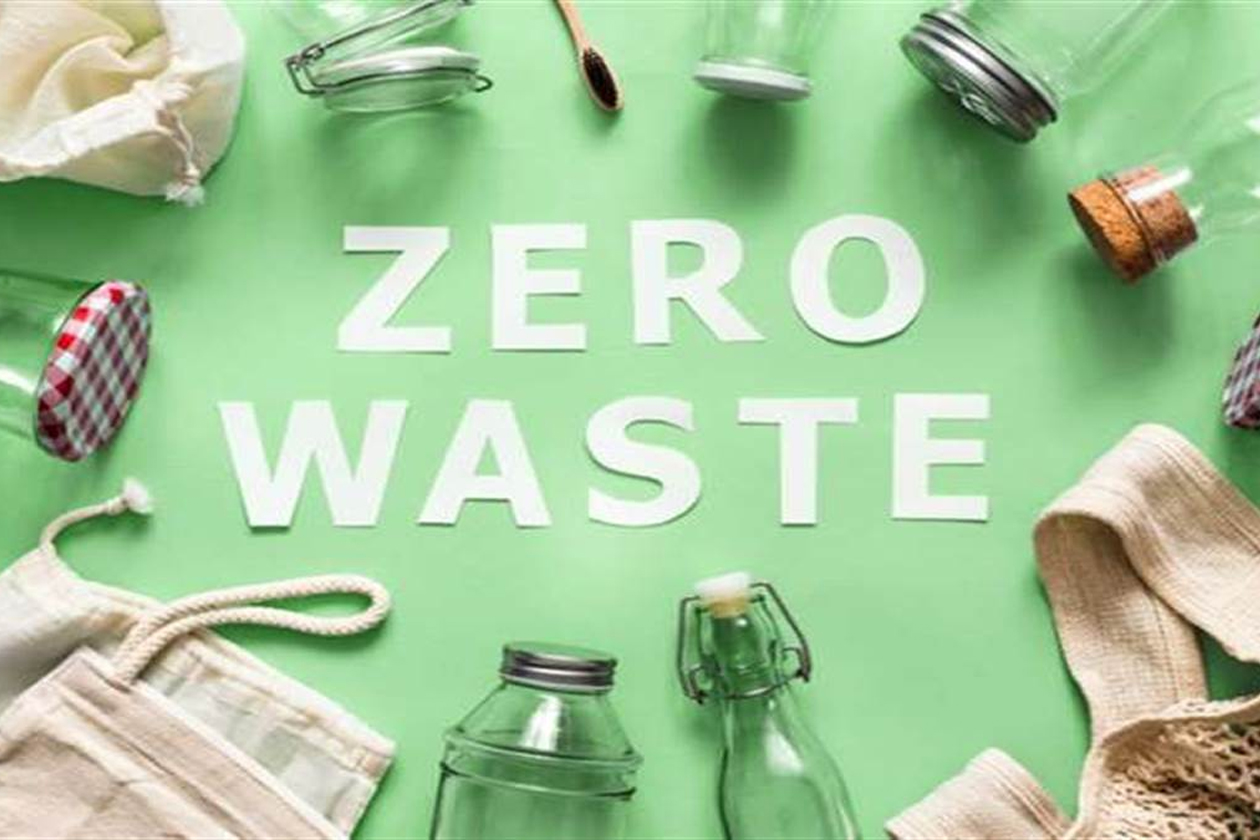
The United Indian

In the ever-evolving landscape of sustainable living, the concept of a zero-waste lifestyle has gained significant traction. Individuals and communities worldwide are awakening to the environmental impact of their daily choices, and nowhere is this more evident than in Indian dwellings. This article delves into the transformative journey towards a zero-waste lifestyle in the Indian context, exploring innovative practices and community initiatives that contribute to a greener, cleaner future.
Understanding the Zero-Waste Paradigm
What does Zero Waste Mean?
At its core, a zero-waste lifestyle aims to minimize waste production, emphasizing sustainable consumption and waste reduction. It's not just about recycling; it's a holistic approach that encompasses conscious choices in purchasing, usage, and disposal of goods. Indian households are increasingly embracing this paradigm shift, acknowledging the crucial role they play in environmental conservation.
Ways to Achieving Zero Waste Lifestyle From Home
Implementing zero waste at home involves making conscious choices to reduce, reuse, and recycle to minimize the generation of waste. Here are various ways to achieve a zero-waste lifestyle at home.
- Reduce Single-Use Items:
- Disposable Items: Avoid using items that are designed for one-time use, such as plastic water bottles, straws, and utensils. These items contribute significantly to landfill waste.
- Reusable Alternatives: Opt for reusable alternatives like stainless steel water bottles, glass containers, and cloth bags. These items can be used multiple times, reducing the need for single-use products.
- Composting
Composting is a cornerstone of zero-waste living. From kitchen scraps to garden waste, Indians are embracing composting as a means to enrich soil and reduce landfill burden. Community composting bins and workshops on composting techniques are empowering individuals to actively participate in waste reduction.
- Mindful Shopping
- Buying in Bulk: Purchase items in bulk to minimize packaging waste. Bring your own reusable containers to stores that offer bulk options.
- In metropolitan cities like Mumbai and Delhi, eco-friendly markets are gaining popularity. These markets offer consumers a chance to purchase sustainable products.
- Packaging Considerations: Choose products with minimal or recyclable packaging. Avoid excessive plastic wrapping and opt for products with eco-friendly packaging.
- Cloth Diapers and Menstrual Products
- Cloth Diapers: Consider using cloth diapers for babies instead of disposable ones. Cloth diapers can be washed and reused, reducing the environmental impact of diaper disposal.
- Reusable Menstrual Products: Switch to reusable menstrual products like cloth pads or menstrual cups. These alternatives generate less waste compared to disposable pads and tampons.
- Recycling
- Separation: Separate recyclable materials from regular waste according to local recycling guidelines. Common recyclables include paper, cardboard, glass, and certain types of plastics.
- Electronic Waste: Responsibly recycle electronic waste by using designated collection points or programs that handle e-waste disposal.
- Upcycling and Repurposing: Before discarding items, explore creative ways to repurpose or upcycle them. Old containers can become storage solutions, and glass jars can be used for DIY projects or organization.
- DIY Cleaning Products
- Natural Ingredients: Make your own cleaning products using simple and natural ingredients like vinegar, baking soda, and lemon. This reduces the need for purchasing and disposing of commercial cleaning products.
- Refill Containers: Purchase cleaning products in bulk and refill reusable containers instead of buying new ones each time.
- Repair Instead of Replace
- Mending and Fixing: Instead of discarding items that are slightly damaged, learn to mend clothes, fix appliances, and repair household items. This extends the lifespan of the products and reduces overall waste.
- Local Repair Services: Support local repair services that specialize in fixing various items, promoting a culture of repair and reuse.
- Energy Efficiency
- Energy-Efficient Appliances: Choose energy-efficient appliances and light bulbs to reduce overall energy consumption. Look for products with ENERGY STAR certification.
- Unplugging Electronics: Unplug electronic devices when they are not in use to minimize standby power consumption, also known as "phantom" or "vampire" power.
- Water Conservation
- Prompt Leak Repairs: Fix water leaks promptly to prevent unnecessary water waste.
- Water-Saving Devices: Install water-saving devices, such as low-flow faucets and showerheads, to reduce water consumption.
- Donate and Share
- Donation Practices: Donate items you no longer need to charities, thrift stores, or community organizations. This extends the life of products and helps those in need.
- Sharing Resources: Share tools, appliances, or other items with neighbours or friends instead of each household purchasing its own, reducing overall consumption.
- Conscious Eating
- Meal Planning: Plan meals to reduce food waste by buying only what you need and using perishable items before they spoil.
- Sustainable Food Choices: Choose locally sourced, seasonal, and minimally packaged foods to support sustainable and eco-friendly agricultural practices.
- Educate and Advocate
- Sharing Knowledge: Share information and tips on zero-waste living with friends and family. Encourage others to make small changes in their lifestyles.
- Advocacy: Support and advocate for policies that promote sustainability, waste reduction, and responsible resource management at the community and governmental levels.
Challenges and Triumphs
Implementing a zero-waste lifestyle in India comes with unique challenges deeply rooted in cultural practices. However, communities are rewriting the narrative, blending tradition with innovation. From eco-friendly packaging in traditional ceremonies to embracing sustainable practices during festivals, Indians are redefining cultural norms to align with environmental responsibility.
The Road Ahead: A Call to Action
- Government Incentives and Policies
To accelerate the zero-waste movement, governments play a pivotal role. Advocating for policies that incentivize sustainable practices, provide tax benefits for eco-friendly businesses, and invest in waste management infrastructure are crucial steps. This collaboration between citizens and authorities can create a formidable force against waste pollution.
- Educational Campaigns: Empowering the Masses
Education is a powerful tool for change. National campaigns promoting the benefits of a zero-waste lifestyle, integrated into school curricula, can shape future generations to be environmentally conscious. By instilling these values early on, India can pave the way for a sustainable and eco-friendly future.
Reusable Event Supplies: Implement zero-waste practices when hosting events at home. Use reusable plates, utensils, and cloth napkins instead of disposable ones. Consider compostable options for items like plates and cutlery.
Creating a zero-waste future requires collective action. Let's spread awareness, share tips and tricks with our neighbours, and advocate for better waste management systems in our communities. We can support local businesses that prioritize sustainability and encourage others to join the movement.
Remember, every small step counts. By making conscious choices in our daily lives, we can collectively weave a greener future for ourselves and the generations to come. Let our homes become havens of mindful consumption, where waste is not an eyesore but an opportunity for resourcefulness and creativity.
Read more in Environment
May 27, 2025
TUI Staff
May 27, 2025
TUI Staff

Stay Tuned with The United Indian!
Our news blog is dedicated to sharing valuable and pertinent content for Indian citizens. Our blog news covering a wide range of categories including technology, environment, government & economy ensures that you stay informed about the topics that matter most. Follow The United Indian to never miss out on the latest trending news in India.
©The United Indian 2024















